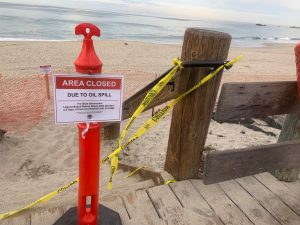
Last week I shared my thoughts about the toxic oil spill off the coast of Southern California that is killing wildlife and wreaking havoc. I discussed how powerful you and I are to help end these environmental disasters for good by curbing our dependency on fossil fuels so we create a clean environment for our children and all life.
And there is something else you and I can do that I believe is just as important to the health and well-being of all children. We can stop ignoring the small toxic leaks of unloving behavior in our relationships.
Little by little the hurtful drops of injury drip. Judgment, sarcasm, anger, frustration, projecting unresolved childhood wounding onto one another, dishonesty with ourselves about ourselves, and more. The hurt we feel causes us to want to escape into the fantasy that it is only one lie or one small drop of disrespect, deceit, avoidance, or cruelty. But the tiny drips of hurt accumulate. And unless these are found and stopped, each unkind word, each episode of ego-boxing and wounding one another in the name of love, adds up, eventually burying our relationships beneath accumulated heartbreak and dysfunction. This is damaging to us and our children. It is not what love does.
When we use excuses that we are rushed, distracted, angry, justified, or did not really mean it, or when we feel powerless to speak our truth, we’re refusing to face the little drops of pain we cause one another. Isn’t that the opposite of how love behaves?
Don’t we need to care that love is not supposed to be judgmental, bullying, cruel, or afraid to address the lasting wounds we cause one another?
Don’t we need to care what behaviors, attitudes, and words in our life and relationships are not loving?
Don’t we need to take our power and act? Be the positive change we want to see?
You may have noticed by now that regardless of whether it is the environment or in our relationships, waiting for a savior is not working. We must step up and be our own saviors, because as the famous quote attributed to Albert Einstein goes, “Insanity is doing the same thing over and over and expecting different results.” Which means we need to step off the wheel of feeling powerless. We do so by getting busy doing things differently to bring about different results in all of our relationships.
We intentionally face the fear of rocking a boat that is already leaking. We appreciate the fact that ignoring the toxic leaks in our relationships will not make them go away. We admit they will not clean themselves. We acknowledge that the dire situations we are creating in our families and in the world are not the legacy our children deserve.
We are powerful to change our hurtful family dynamics. We are adults who can bravely face the discomfort of feeling powerless. We take action and initiate conversation about bullying. We turn off mistreatment when we see it on television, in video games, and in social media. We stop listening to opinionated news commentary and the judgment that too often becomes the basis for our religious attitudes. We pay attention to how negative social media, our emotional absence, or trying to fit children into a specific box of our own making is robbing them of their childhood joy, undermining their self-esteem, and weakening their ability to connect with themselves, each other, and the natural world. We look at our expectations, distractions, addictions to technology, and how we feel about ourselves and other people with the goal of transforming all we find to be toxic in our relationships.
No matter how insurmountable our challenges seem to be, we are powerful to overcome them when we keep foremost within our heart the understanding that love thinks before it speaks and listens as it wants to be heard. Love is emotionally present. Love overrules a wounded ego’s pride and the desire to fight fire with fire. Love stops us from seeking escape in the comfortable fantasies we create to avoid the hard to face.
It is a struggle for a butterfly to emerge from its cocoon. But once freed, it adds great beauty to the world.
We are in individual and collective cocoons of sorts, struggling to free ourselves from several great challenges. Let’s make this positive effort to create kinder and more connected relationships with ourselves, our families, and our neighbors. Let’s talk about the challenging subjects of hurt and disrespect with the knowledge that we can transform these for the better. Let’s take care of our earth and our homes by recommitting to all our relationships with thoughtfulness, honesty, responsibility, emotional presence, and empathy.
We can emerge triumphant from the cocoon of feeling powerless. We can add great beauty to our relationships and the world. We simply accept that “I love you,” comes with the huge responsibility to actually love.
